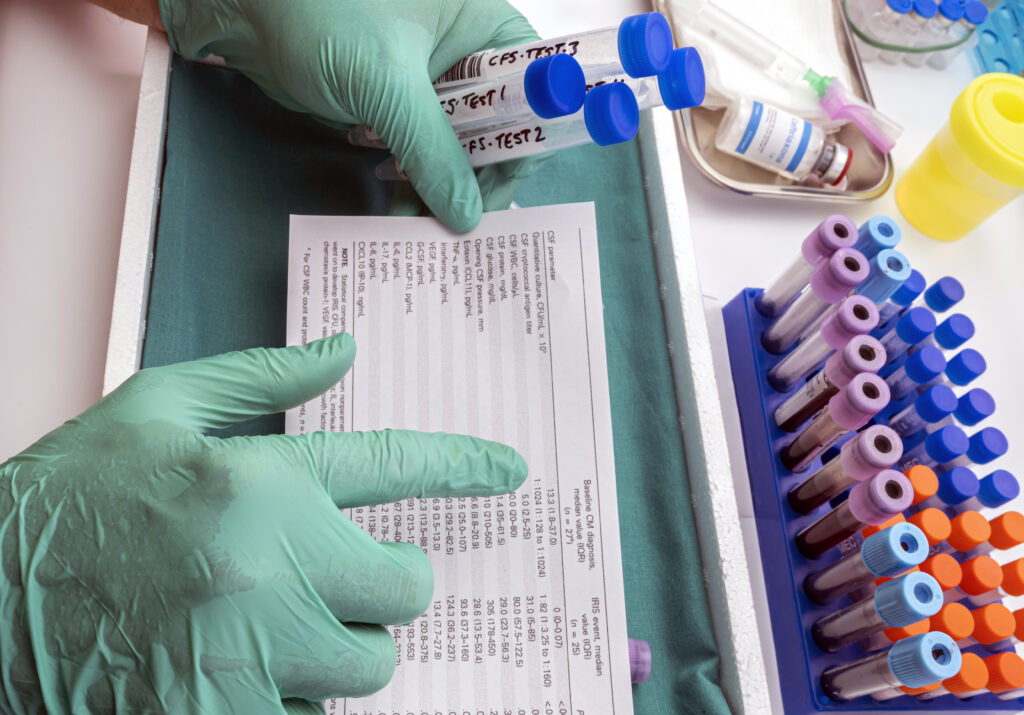Studying CSF to further reveal pathogenesis mechanisms in ME/CFS

The goal of this research is to reveal more information about the role of immunology and neuroinflammation in ME/CFS, and the underlying mechanisms of related pathogenesis that takes place.
Multi-Omic Approaches to Solve Post-Acute COVID-19 (MOSAIC)

The purpose of this study is to facilitate early detection of ME/CFS in people with Long COVID and better understand disease progression.
Brain Flow & Inflammation in ME, POTS & Long COVID
The study aims to explore the structural, neuro-vascular, and biochemical differences in the brains of individuals with ME/CFS, Long COVID, and POTS to elucidate the underlying pathology and identify potential targets for effective treatment strategies.
Personalised Treatment Trials: Monitoring and Improving the Connection of Treatments to Patients
The study aims to deeply characterise patients before, during and after treatments are trialled through their GP. Producing large scale data in combination with treatment outcome will be used to produce a predictive algorithm to improve the connection of patients to appropriate treatment options sooner.
MELLOW: Tracking Hormonal Fluctuations in ME/CFS and Long COVID
The study aims to investigate how hormone fluctuations in individuals with ME/CFS and Long COVID, compared to healthy controls, impact metabolism and immune pathways by measuring hormones, metabolites, and inflammation markers in biofluid samples.
Blood Flow and Exercise in ME/CFS and Orthostatic Intolerance

The study aims to investigate the effects of supine vs upright exercise on cerebral blood flow, blood pressure, heart rate, and the presence of autoimmune antibodies in ME/CFS patients with orthostatic intolerance, compared to controls, to understand the underlying mechanisms and differences in symptom severity and post-exertional malaise.
Crash-Course: Studying PEM/flares in ME/CFS, PTLDS, Long COVID
The study aims to compare biological markers during mild symptoms and flare/PEM events in individuals with ME/CFS, alongside PTLDS and Long COVID patients, using finger-prick blood samples and continuous data from wearable sensors to understand symptom variability.
AusME Biobank Biomarker Project

The study aims to utilise the Australian ME/CFS biobank for metabolomics analyses and other assays to identify potential biomarkers for Myalgic Encephalomyelitis/Chronic Fatigue Syndrome, contributing to a comprehensive dataset for large-scale analysis.
Temporally Resolved Omics Tracking of ME/CFS
Temporally Resolved Omics Tracking of ME/CFS Study AIM This study seeks to understand the biological mechanisms driving the symptomatology of Myalgic Encephalomyelitis/Chronic Fatigue Syndrome (ME/CFS) using metabolomic and lipidomic high-throughput analysis and high-frequency blood sampling over a 6.5 to 7.5 hour period conducted at two separate sites (Melbourne and Uppsala). LEAD INVESTIGATORS Martin Lewis, PhD […]
BOSS-ME: Biological Outlier and
Subtyping Software for ME/CFS
This project will develop a software tool to rapidly look for metabolism anomalies in an individual which might be explained by their genes. It will also look for potentially damaging genes in individuals and it will attempt to group ME/CFS patients based on their genetic and metabolic profiles.


